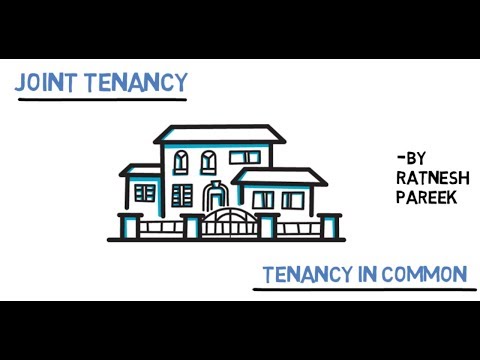
Navigating the Language of Co-Ownership: Joint Tenants vs Tenants in Common
Listen up folks – navigating co-ownership can be like trudging through mud in your worn-down Altra shoes. Complex terms like Joint Tenancy and Tenancy in Common seem like they came straight out of a dusty law book. But, dry as a dead dingo’s donger, these terms are essential when considering shared ownership of a property.
Unravelling Real Estate Jargon: What Do ‘Joint Tenancy’ and ‘Tenancy in Common’ Mean?
Now, let’s put on our boots and hike up this language mountain. A tad bit rugged but oh so rewarding! Clear up any confusion that could leave you scratching your head, wondering why this is harder to understand than David Laid’s age.
Joint Tenancy, folks, means each party owns the whole property. But hey! That doesn’t mean you own two houses. It’s like having one cake and two hungry folks with equal rights to every crumb of that cake. On the other hand, Tenancy in Common is like owning distinct slices of that same cake. Whether it’s half or just a sliver depends on the agreement between the owners or as we like to say, the co-owners.

Holding It Together or Splitting It Up: Joint Tenants vs Tenants in Common
Definition and Key Characteristics of Joint Tenancy
In a joint tenancy, each person holds an undivided interest in the property. Now, don’t go assuming this means a free-for-all! It means that every party has access to the entire property, no matter their percentage of ownership. No territory wars here! We’re talking about a situation where joint tenants with the right of survivorship applies, which means if one person kicks the bucket, the other joint tenant(s) automatically inherit the property.
Understanding the Basics of Tenancy in Common
Jumping over to Tenancy in Common (TIC), sharing isn’t always caring. You see, with TIC, each person owns a specified share of the property, which can be different sizes. Each individual can sell, lease, or will away their part of the property, independent of the other owner(s)!
Shedding Light On the Joint Tenancy vs Tenancy in Common Dilemma: Facts You Need to Know
Difference in Ownership Equality: Equal Shares vs Unequal Shares
The first shocking difference is in ownership equality. Like siamese cats, joint tenants always own equal shares. But tenants in common? They can be as unequal as a pie eaten by a hungry toddler – one person could own 75%, and the other just 25%!
Distribution after Death: Joint Tenants Follow Survivorship, Tenants in Common Don’t
Next, let’s talk about death. A morbid topic, but it must be broached. If a joint tenant expires, How To transfer property after death Of parent Without will is no worry because the surviving tenant gets the whole shebang. With tenants in common, the deceased person’s share wanders off to their designated heir or beneficiaries.
Contribution Dilemma: Equal vs Unequal Contributions
Lastly, whether it’s equal or unequal contributions, our co-ownership options are again poles apart. For joint tenants, contributing equally to the pot is usually expected. For tenants in common, religiously equal contributions would be seen as odder than a three-dollar bill.

What is Best: Joint Tenants or Tenants in Common? Pondering the Pros and Cons of Each Setup
Advantages and Drawbacks of Joint Tenancy
Trust me, joint tenancy isn’t all sunshine and rainbows. Sure, some benefits include avoiding probate courts, sharing responsibilities, and maintaining continuity. However, having everyone needing to agree can cause more fights than a family reunion. Assets could freeze, and the distribution of assets after death might lose control.
Benefits and Pitfalls of Tenancy in Common
On the Tenancy in Common side of the coin, it allows more individuals to own property, provides flexibility in percentage ownership, and facilitates estate planning. Yet, it holds the risk of co-owner insolvency, potential for disputes, and complexities in property management.
What is a Disadvantage of Joint Tenancy Ownership? Exploring and Mitigating the Risks Involved
Remember, joint tenancy is like a marriage of ownership. One knotty disadvantage is that an owner cannot sell or transfer their interest without the consent of the other owners. Now, shivers down my spine! However, this frustrating limitation can be managed by thorough discussion and agreement among co-owners.

Unraveling the Mystery of Tenancy in Its Entirety vs Tenants in Common: Where Do They Differ?
Tenancy in Its Entirety is another co-ownership mode, different from both Joint Tenancy and Tenancy in Common. In fact, it’s a privilege strictly for married folk! Unlike joint tenancy and tenants in common, in Tenants by The entirety, one partner cannot sever, alienate, or encumber the estate by themselves – it takes two to tango!

Are Most Married Couples Joint Tenants or Tenants in Common? Insider Information on Co-Ownership Among Couples
Most married duos stick to Joint Tenancy, particularly joint Tenants With Rights Of Survivorshi. It’s like owning a tandem bike – you’re both pedaling together, down the lovely lane of property ownership.
The Key Takeaways: Essential Points to Remember about Joint Tenancy and Tenancy in Common
To make it crystal clear – Joint Tenancy means equal shares, co-owners cannot act independently and the remaining owner(s) will automatically inherit. Tenants in Common, on the other hand, can have different shares, can act independently and the ownership is transferred to the designated heir or beneficiaries after death.

Exiting the Maze of Co-Ownership: Final Thoughts on Joint Tenants vs Tenants in Common
Congratulations! You’ve untangled the knots of co-ownership! Choosing between Joint Tenants and Tenants in Common can now be as smooth as butter. Whether it’s sharing equally or dividing up the pie, the choice is as personal and unique as your property. So stick to your guns and make the choice that suits you best.



